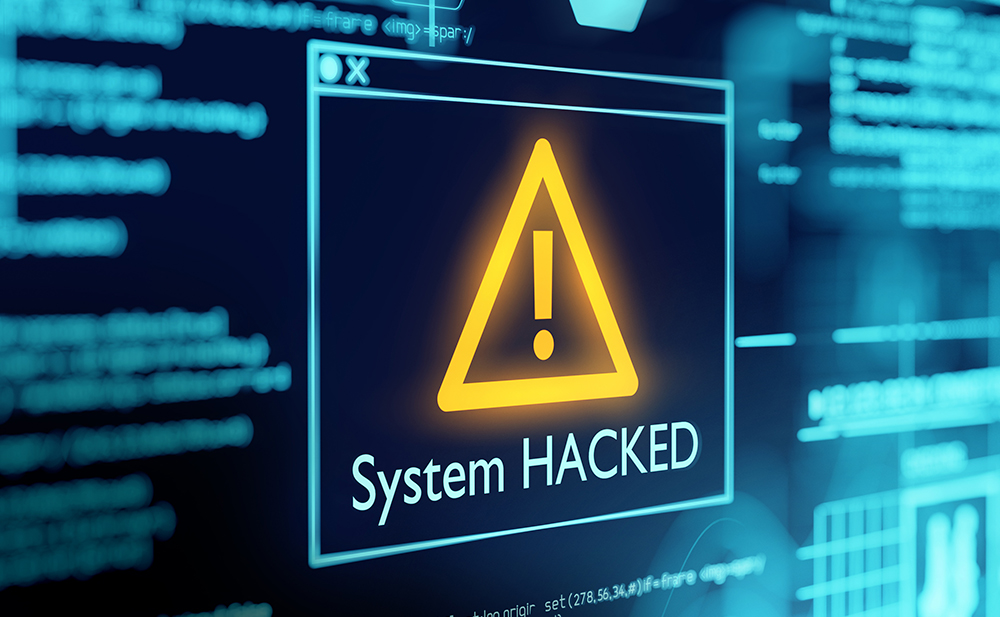How to Protect Your Data After a Cyber-Attack.
What to do if you’re worried your information may have fallen into the wrong hands.
A major new cyber-attack has exposed the personal data of hundreds of thousands of legal aid applicants across England and Wales — the latest in a growing wave of high-profile breaches. Following recent cyber-incidents that disrupted operations at Marks & Spencer and the Co-op, experts are warning people to stay alert and take immediate steps to secure their information.
If you’re concerned that your data might have been compromised, here’s how to reduce the risk and protect yourself from fraud and identity theft.

1. Change Your Passwords — Immediately and Effectively
Strong, unique passwords are your first line of defence. If you’ve had any interaction with an organisation affected by a cyber-attack, change your password for that website or app straight away.
Avoid reusing the same password across multiple accounts. Instead, consider using a password manager to generate and store complex, unique passwords for each service.
“Consider using a password manager to generate and store strong, unique passwords,” says online security firm NordVPN.
Also, enable two-factor authentication (2FA) wherever possible. This adds an extra layer of protection by requiring something you know (your password) and something you have (like a code sent to your phone).

2. Be Cautious of Unexpected Emails, Calls or Messages
Phishing scams often spike after cyber-attacks, as fraudsters exploit the news to trick people into giving away more information.
Avoid clicking on links or opening attachments in unsolicited emails, texts, or social media messages unless you’re absolutely sure they’re legitimate. These could direct you to fake websites or contain malware designed to steal your data.
Fraudsters may use stolen personal details to make their communications sound more convincing.
If you receive a suspicious message claiming to be from a company you use, don’t engage. Instead, use official contact information from their website to verify the message independently.

3. Monitor Your Credit Report for Signs of Identity Theft
If your personal details have been stolen, fraudsters might try to open loans, credit cards, or other accounts in your name. That’s why it’s important to regularly check your credit report.
You can access your credit data for free through services such as Credit Karma and ClearScore.
Look out for red flags like:
-
Being refused credit when you’ve previously had a good rating
-
Missing bank statements or unfamiliar charges on your accounts
-
Receiving letters about debts you don’t recognise
These could be signs that someone is misusing your identity.

4. Use Social Media with Extra Care
Many scams originate on social media platforms. Criminals often use personal information from data breaches to impersonate people you know.
A common tactic is the “Hi Mum” scam, where someone pretending to be a relative asks for money urgently, claiming they’ve been locked out of their bank account after losing a phone.
Don’t let urgency override caution. Always verify a person’s identity through a separate, trusted channel before transferring any money.

5. Secure Your Devices
Keeping your devices up to date is essential for protecting against malware and other threats.
Install the latest security and software updates as soon as they’re available, and only download apps or software from trusted sources like official app stores.
Outdated systems are far more vulnerable to attacks, so regular maintenance of your digital devices is a must.

Conclusion: Key Steps to Stay Safe After a Data Breach
If you believe your data may have been exposed, act quickly to secure your accounts and personal information. Here's a quick recap:
-
Change passwords immediately, and use a password manager.
-
Enable two-factor authentication on all key accounts.
-
Stay alert to phishing attempts and verify any suspicious messages.
-
Monitor your credit report for any signs of unusual activity.
-
Be cautious on social media, especially with urgent or emotional messages.
-
Keep your devices up to date to block security vulnerabilities.
Cyber-attacks are becoming more common — but by staying proactive and informed, you can greatly reduce your risk and better protect your digital identity.














